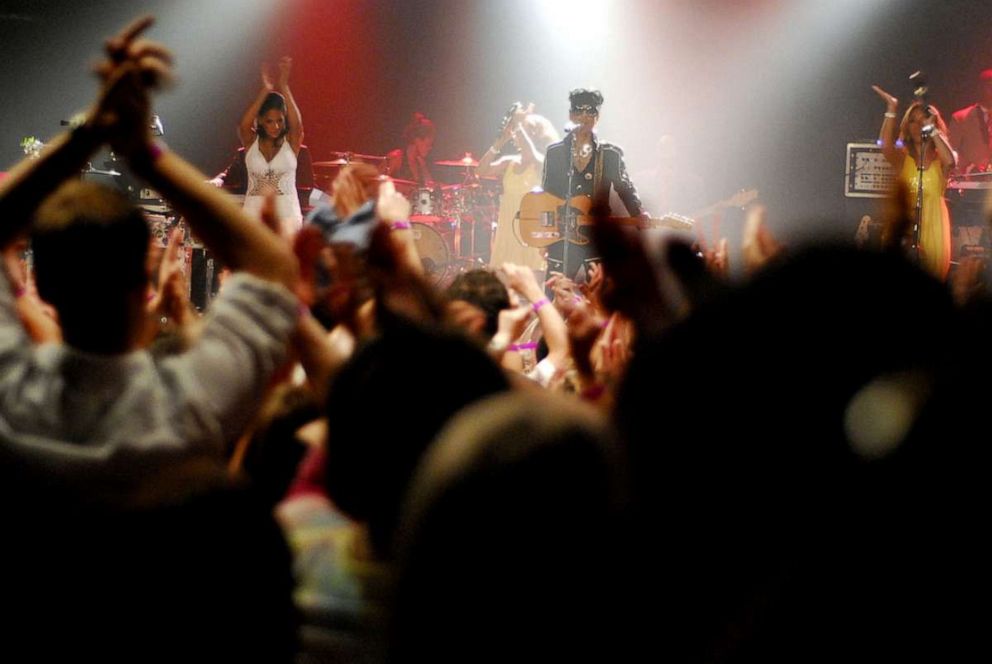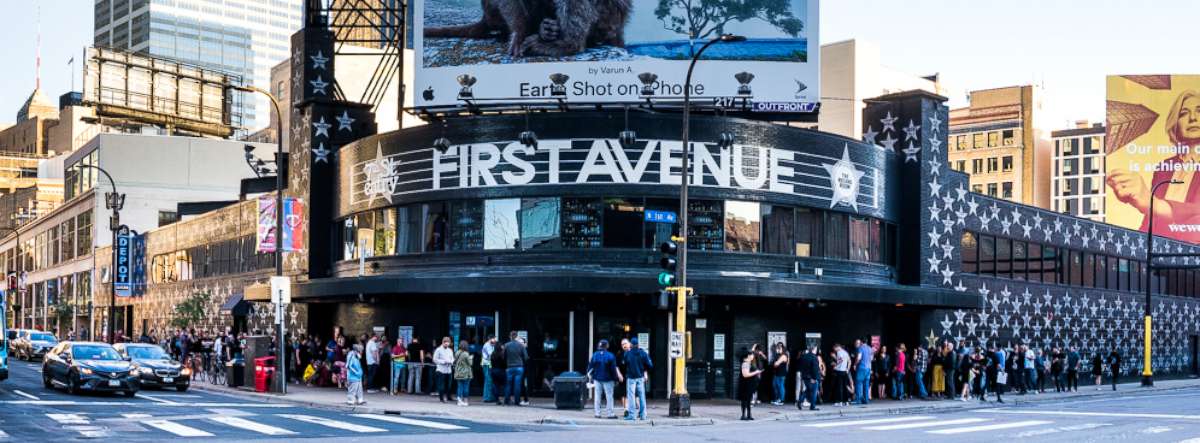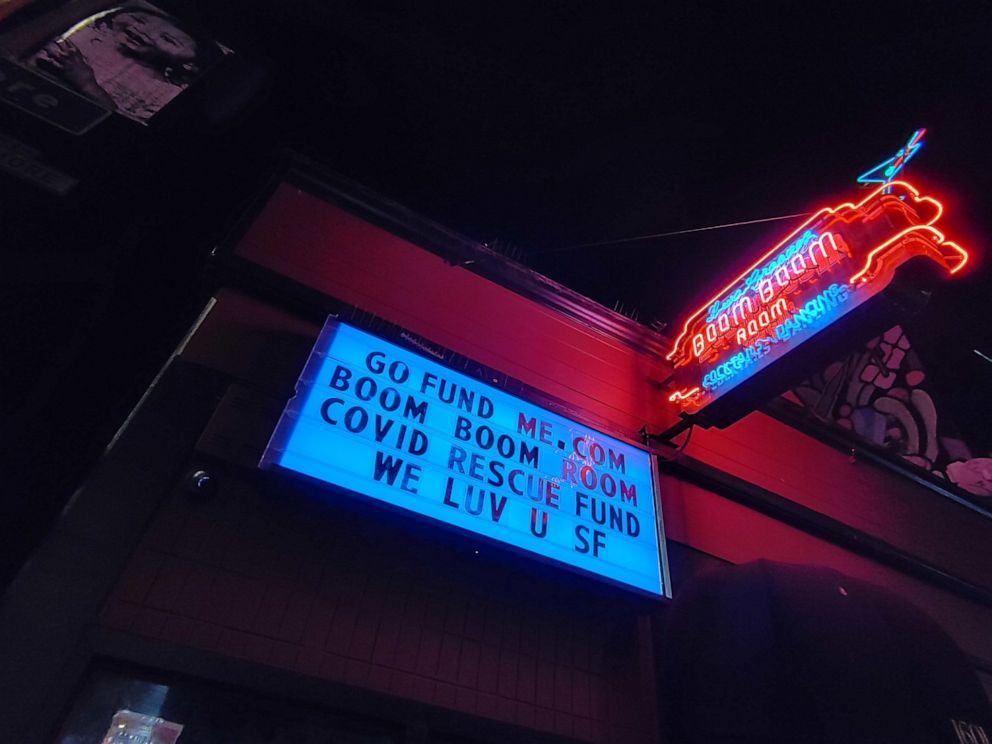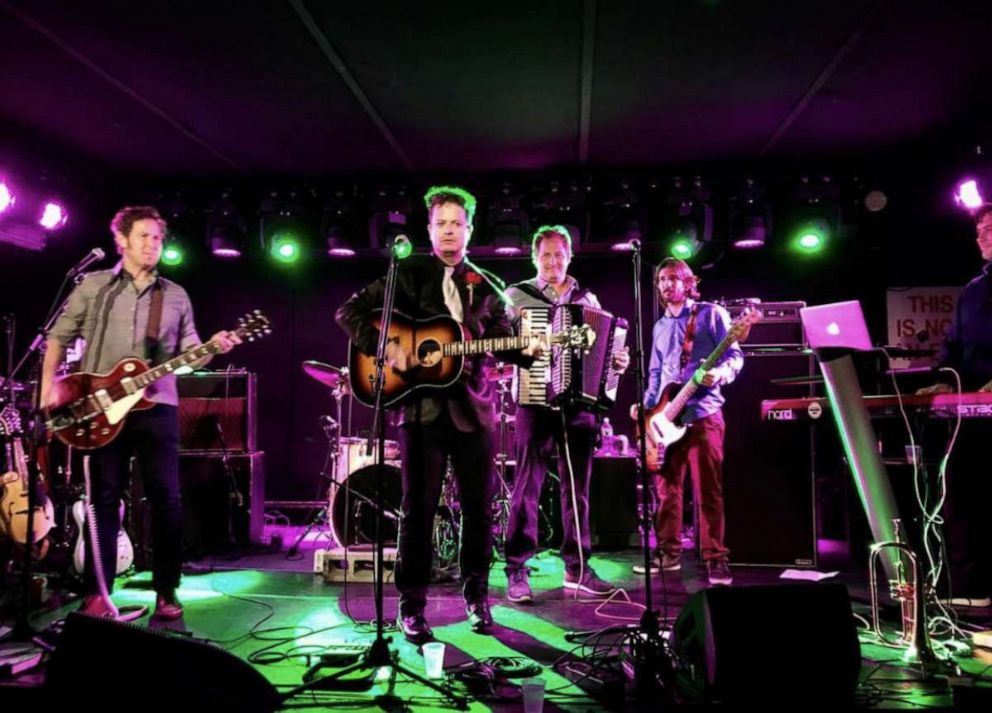Facing extinction, local rock clubs hire lobbyists to plead with Congress
Many fear they'll never be able to reopen in the wake of COVID-19.
It was the early 1990s, and Alexander Andreas was a young bartender in San Francisco's Fillmore District when his hands-down, coolest customer called with an irresistible offer: "You wanna meet Keith Richards?"
It was blues giant John Lee Hooker on the line, inviting Andreas to come hang out with Hooker and the Rolling Stones' legendary lead guitarist.
Andreas didn't think twice. He hopped in his car and headed south to Hooker's Redwood City home and sat in wide-eyed silence for an hour while the two old friends got a chance to catch up. Richards adored the older bluesman, who died in 2001, and the feeling was mutual, Andreas said.
"They just loved to sit and talk," he said.
Andreas first met Hooker at Jack's Bar. The 20-something drink-slinger was the only employee in the house to spot the Mississippi-born blues legend when he walked in one day in his signature shark-skin suit and Homberg hat.
Andreas hustled out from behind the bar, tipped off the doorman to their celebrity guest, and scrambled off to sweet-talk some customers into clearing the best table for Hooker and his driver, nephew Archie Lee Hooker. A friendship familiar to any local rock club owner in America was forged that day, borne out of mutual respect and a shared love of live music.

A few years later, in 1997, Andreas and Hooker partnered to reopen Jack's Bar as "John Lee Hooker's Boom Boom Room." In the ensuing years, the club entertained -- and was entertained with spontaneous performances by -- Richards, Bonnie Raitt, Van Morrison, Elvis Costello and The Attractions, Buddy Miles and a constellation of American blues and jazz legends.
"They play there as if they're 25 years younger, as if they're just starting out," Andreas said of the club. "It's a connection for them to their past."
But in early March, the Boom Boom Room was among the first of hundreds, if not thousands, of independent rock clubs to close its doors as the COVID-19 pandemic swept across the nation.
Without substantial financial assistance, Andreas told ABC News, the club may never reopen.
"We have unfunded liabilities, unpaid rent -- it's deferred, not forgiven -- and a landlord that is not being helpful," Andreas said, describing his situation as "dire." "We need at least $150,000 to open in July. And that's just to open."
Facing an existential threat, hundreds of the most iconic independent rock clubs in America have banded together to do the unthinkable in an industry forged on pride, risk, ingenuity and imagination.
Last month, a coalition of club owners now numbering more than 1,600 -- the National Independent Venue Association -- hired top-shelf Capitol Hill lobbyists to petition Congress for financial assistance.
"We are in a business that is beyond low-margin, high-liability and high-risk," said Dayna Frank, NIVA's newly appointed president, who also runs the legendary First Avenue club in Minneapolis.
"We're not just zero revenue, we're negative revenue," Frank said, explaining that clubs continue to pay bills, maintain staff and try and make rent, but they're also issuing hundreds of thousands in ticket refunds. "Our clientele are our community members. We have a special relationship with our fans. We're not going to compromise that relationship in the long term."
'Dark times'
Hundreds of American cities have a local club that can lay claim to fostering and launching legends from cramped but hallowed stages: the Troubadour in Los Angeles, where Elton John got his start; Floore's Country Store in San Antonio, where Willie Nelson kicked off his career and Merle Haggard wound his down; Cleveland's Beachland Tavern, where the Black Keys played their first show in 2002.
There's Washington D.C.'s treasured 9:30 Club, where the Foo Fighters played an epic surprise show in 2014, and New York's Bowery Ballroom, home to Patti Smith's fabled early-2000s monthly gigs.
There's Minneapolis' First Avenue club, a breeding ground for Midwestern breakouts like Lizzo, and the spot where Prince held one of his legendary 07/07/07 hometown shows.
There's Chicago's club Metro, which played host to an explosive series of early-1990s performances by REM, Nirvana, the Red Hot Chili Peppers and Jane's Addiction.
There's the Pabst Theater in Milwaukee (established 1895), the Wilma in Missoula (1918) and the Cain's Ballroom in Tulsa (1924), and every single NIVA member club is facing one form of financial threat or another, Frank said.

"We're in dark times," acknowledged Michael Swier, owner of New York's Bowery Ballroom and Mercury Lounge. "The unknowns are just staggering."
"It's hard to see the entrance to the tunnel, let alone the light at the end of it," he added.
In March, Congress passed the CARES Act, which included the Paycheck Protection Program, a forgivable loan program for small businesses. The short-term relief package has worked well for some entertainment industry establishments, like restaurants, according to interviews with lobbyists, lawmakers and independent music club owners.
But for nightclubs, which have indefinitely canceled upcoming events and in many states aren't even allowed to summon employees to work, "It's a bit of a square peg in a round hole," said Brian Pomper of the Washington D.C. law and lobbying firm Akin Gump Strauss Hauer & Feld.

For decades, local live music clubs have proven themselves vital hothouses for popular music, one of America's most potent and lucrative exports.
"It's the independent venues that are launching smaller acts into the stratosphere," Frank said. "We'll put on somebody's first 10 shows and lose money because we believe in them."
"And we know that they're going to get too big," she continued. "They're going to go to arenas. They're going to be out of our reach. We do it because we love it."
Frank was among the first to spot Detroit-born pop star Lizzo.
"She cut her teeth at First Avenue and at the Triple Rock Social Club," said Frank. "I knew it the first time I saw her on stage. She was in [a trio] called The Chalice -- and you just saw her and you're like, 'Oh, this is like nothing I've ever seen before. We're going to do everything we can to make sure she gets heard.'"
The indie rock club food chain feeds not just the staffers, the managers, the crews and security, but the artists themselves.
Veteran New York musician P.J. O'Connor was scheduled to play at New York's Mercury Lounge on May 21 to coincide with the release of his debut solo album, "Television's Golden Age."
"You have no idea how I hustled for that date," said O'Connor, a colorful and energetic entertainer who's headlined New York clubs for years as a member of Radio Four and The Bogmen. "It's the perfect date: the Thursday night before Memorial Day weekend in New York City! All the stars were aligned for an unbelievable night. The album was gonna drop that day, but now it's been postponed."
With Manhattan still on lockdown, the show has been canceled too.
"It's awful out there," O'Connor observed.

'Good soldiers'
But NIVA's monthlong campaign, which began in mid-April, may be gaining some steam.
"I've rarely worked with clients as energized and focused as the NIVA folks are," Pomper, whose firm was hired to lobby Congress for NIVA, told ABC News. "These people are fighting for their lives."
That fighting spirit was apparent in interviews with club owners from across the nation.
"We're not looking for a handout, we're looking for a hand up," said Joe Shanahan of Metro, near Wrigley Field in Chicago. "These are basically mom-and-pop businesses working very closely with government to find a way to give us a path forward."
"I'm not going to say it's going to be a paved road. But we're entrepreneurs, we're creative, we're smart. You give us some tools, we're good soldiers. We're also economic engines for the local economy. We pay sales tax, licensing taxes, rents. We employ hundreds of people."
Congress appears to be taking notice.
Among elected officials approached for support by NIVA was Wisconsin Congressman Ron Kind, a member of the powerful House Ways and Means Committee.
"We have something in action right now we're putting in legislative form and discussing with Congressional leadership," Kind said in an interview last week.
Kind's proposal involves rewriting the language in the federal tax code to make independent music venue ticket refunds eligible for disaster loss under the federal code for losses incurred during a federally declared emergency.
"That would be a fully refundable tax credit, and I think it would go a long way in helping independent venues across the country," Kind told ABC News.
Pomper said that rent and mortgage forgiveness for independent clubs is also under discussion.
A grassroots letter-writing campaign had, as of Friday, delivered more than 330,000 individual letters to Congressional representatives, said Audrey Schaefer, a NIVA spokeswoman who also works with Washington's 9:30 Club.
Dozens of members of Congress recently sent a letter to House leadership urging support for NIVA's mission.
"We can provide a vital lifeline for the industry that will help to sustain the iconic venues that are central to the social, cultural and economic fabric of so many of our communities," reads the letter, signed by 93 members of Congress. "This industry is not going to make it without our help."
Earlier this month, Boston's Great Scott's closed its doors for good, as did Dallas' iconic Lizard Lounge.
With each passing day, Frank said, financial pressure is mounting on club owners everywhere: "I'm fielding calls -- three or four calls a day -- from promoters and venues who are like, 'I have one month left Dayna, what do we do?'"
Despite staggering odds, local music industry veterans seem far from ready to surrender.
"Our artists have been the trailblazers all along," said Kieran Blake, longtime general manager of New York's Bowery Ballroom.
"Now it's up to us to be the trailblazers, but responsible trailblazers," he concluded.
"It's the only way we're going to get ourselves back onto those dance floors and into each other's arms."




